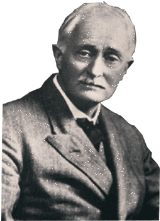 Some Penguin Classics certainly qualify as secular scripture, which we probably need after a dose of the holies. We all have a shelf of such books that qualify as such personal scripture, and my tastes being what they are, many of mine are included in the Penguin Classics line. The foremost of these, my single favorite book, is Ovid's Metamorphoses, and it was curiously ill-treated by Penguin in the 20th century. The Penguin Classics edition, definitely aimed at the same school-textbook niche had had made their prose Iliad such an astonishing success, was a 1955 prose translation by Mary Innes, who "spent over twenty years proving to schoolgirls that the classical languages can and should be enjoyed" (as we're told in a bio-note clearly - and tellingly - dictated by her). Under her careful, accurate, bowdlerizing touch, we get Ovid's fifteen-book epic as a changed thing itself: gone is the glitter, the liquid grace, the jazzy contrapunction. Gone is the wordplay, the teasing irreverence, and all the wit. What's left is a big miscellany of 'tales of gods and goddesses' in the vein of Edith Hamilton, perfect for Scottish schoolgirls, even though its original author, drunk and flushed from some unsuccessful boy-chasing at a party on the Esquiline, would have extemporized the most exquisite execration of the end result.
Some Penguin Classics certainly qualify as secular scripture, which we probably need after a dose of the holies. We all have a shelf of such books that qualify as such personal scripture, and my tastes being what they are, many of mine are included in the Penguin Classics line. The foremost of these, my single favorite book, is Ovid's Metamorphoses, and it was curiously ill-treated by Penguin in the 20th century. The Penguin Classics edition, definitely aimed at the same school-textbook niche had had made their prose Iliad such an astonishing success, was a 1955 prose translation by Mary Innes, who "spent over twenty years proving to schoolgirls that the classical languages can and should be enjoyed" (as we're told in a bio-note clearly - and tellingly - dictated by her). Under her careful, accurate, bowdlerizing touch, we get Ovid's fifteen-book epic as a changed thing itself: gone is the glitter, the liquid grace, the jazzy contrapunction. Gone is the wordplay, the teasing irreverence, and all the wit. What's left is a big miscellany of 'tales of gods and goddesses' in the vein of Edith Hamilton, perfect for Scottish schoolgirls, even though its original author, drunk and flushed from some unsuccessful boy-chasing at a party on the Esquiline, would have extemporized the most exquisite execration of the end result.Mainly because it's lifeless, and Ovid's great poem, more than any other from the ancient world, absolutely teems with life (as a certain wise man once hopefully described the universe). He wrote it in the blinding fullness of his talents, after his journeyman work and the challenges to orthodoxy were out of his system, after he finally began to understand what Virgil, for example, knew right away: that there's nothing inherently wrong (or worse, embarrassing) about working in canonical terms. In this as in all things, the performance is all - Ovid at last saw this and determined to embrace it. Change is the theme of his masterpiece, and not the least among the changes it signaled was his own: "We have laughed and reveled together, you and I," the Metamorphoses told its readers, "now let me sing you a different song." It's in every way a transcendant work, richly meriting the immortality Ovid himself predicts for it, and it deserves better than Miss Innes calling it a "treasure trove" and calling its author "the prince of story-tellers."
It deserves, first, verse. Yes, this is difficult - not only because Ovid's dactylic hexameter fits poorly in mouth-breathing English iambs, but also because Ovid intended it to be difficult; he weaves more complexity into a couple of lines than any poet after him until John Donne (the problem works both ways, incidentally: if you want to ruin a perfectly good hour, try translating one of the Holy Sonnets into Latin) - this is bound to be a translators' graveyard.

Nevertheless, Penguin could have done better than a prose outline, and I kept expecting them to. I wanted to see a Penguin Classic of Arthur Golding's 1567 masterpiece, still possessing all its unmistakeably Elizabethan crashing suavity. Even better, I wanted to see Horace Gregory's fantastic 1958 translation, still, to my mind, the finest English version of Ovid's poem ever made. But I had to wait and look elsewhere during the 20th century, and in 2004 Penguin Classics published a verse translation by David Raeburn, and my wait was over. Raeburn's Metamorphoses doesn't have the power of Golding's nor the assurance of Gregory's, but it does a good job of convincing me that it doesn't aspire to such things. Instead, it's got a supple, conversational charm all its own. Listen to the rhythms he manages in the famous scene where poor Actaeon surprises the goddess Diana while bathing and is instantly changed:
As she splashed his hair with revengeful drops,
she spoke the spine-chilling words which warned of impending disaster:
'Now you may tell the story of seeing Diana naked -
If story-telling is in your power!' No more was needed.
The head she had sprinkled sprouted the horns of a lusty stag;
the neck expanded, the ears were narrowed to pointed tips;
she changed his hands into hooves and his arms into long and slender
forelegs; she covered his frame in a pelt of dappled buckskin;
last, she injected panic. The son of Autonoe bolted,
surprising himself with his speed as he bounded away from the clearing.
But when he came to a pool and set eyes on his head and antlers,
'Oh, dear god!' he was going to say; but no words followed.
All the sound he produced was a moan, as the tears streamed over
his strange new face.
Right after the publication of the Metamorphoses (while it was itself still changing, in fact, constantly being revised by its fretting author), a horrible transformation came upon Ovid himself: he was banished from Rome, sent into exile at Tomis on the edge of the Roman world (I've written about it here). He begged to be returned (or at least exiled someplace with decent food), but his pleas, like those of his heroes and heroines, his hapless mortals, went unheeded. I myself think he would have found it poor comfort indeed that we're still reading his books two thousand years after his misery dried to dust, but I can hope I'm wrong.
At least his work is now properly enshrined as a Penguin Classic! This volume also sports an Introduction by Denis Feeney that's not to be missed.







